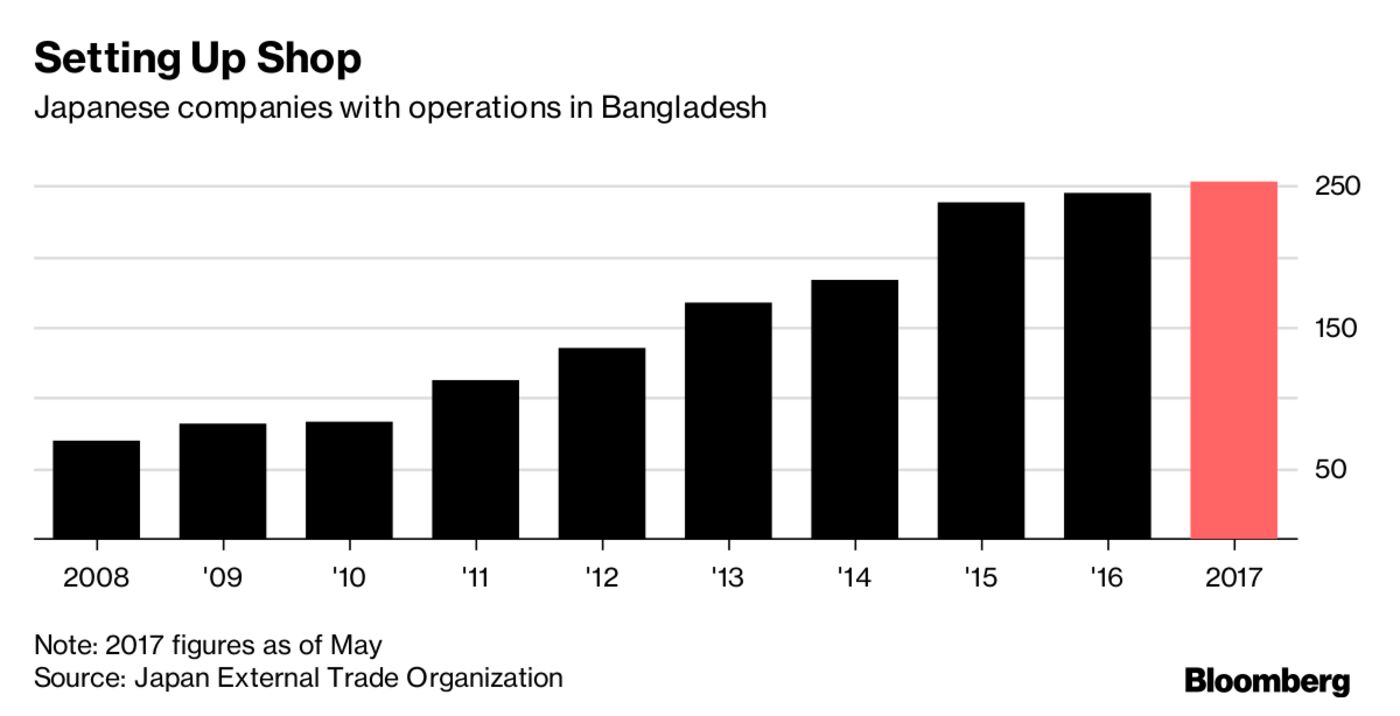As wage hikes in China push away manufacturers, Japanese companies are on the hunt for cheaper production bases elsewhere in Asia. One country where they’re landing is Bangladesh, which offers them the lowest labor costs in the Asia-Pacific region.
The number of Japanese companies with operations in Bangladesh has more than tripled since 2008, reaching 253 as of May 2017, according to the Japan External Trade Organization. That’s still far fewer than the number in China or Thailand, but their presence in Bangladesh is increasing at a much faster pace.
“Bangladesh has been traditionally known as Asia’s poorest country,” said Mari Tanaka, an official at Japan External Trade Organization’s Overseas Research Department. “Labor costs there are lower compared to Japan and other East Asian countries, while it’s possible to hire a large number of young laborers.”

Among workers in 19 countries in Asia Pacific, those in Bangladesh received the lowest average monthly wage from Japanese companies, below their counterparts in Sri Lanka, Laos and Myanmar, according to a Jetro survey.
Some firms are establishing a presence in Bangladesh with an eye on its promising domestic market, Jetro says. Major companies such as Honda Motor Co., Rohto Pharmaceutical Co. and Ajinomoto Co. are betting on growth there. With a population of 158 million and a median age of 26.3 years, the country’s gross domestic product has more than doubled over the past five years.
“Larger companies are expanding with the expectation that the domestic market will grow,” Tanaka said.

Uniqlo operator Fast Retailing Co. played a role in Japanese companies starting to move to Bangladesh a decade ago, Tanaka said. Their decision to outsource production there in 2008 triggered a jump in Japanese arrivals, while rising labor costs in China and worsening relations between China and Japan in 2010 and 2012 drove another burst, she said.
Among the 253 companies operating in Bangladesh, about 30 are in the clothing or leather industries, 15 or so are in clothing parts and inspection, 10 in logistics and about 15 in the IT services industry.
No comments:
Post a Comment